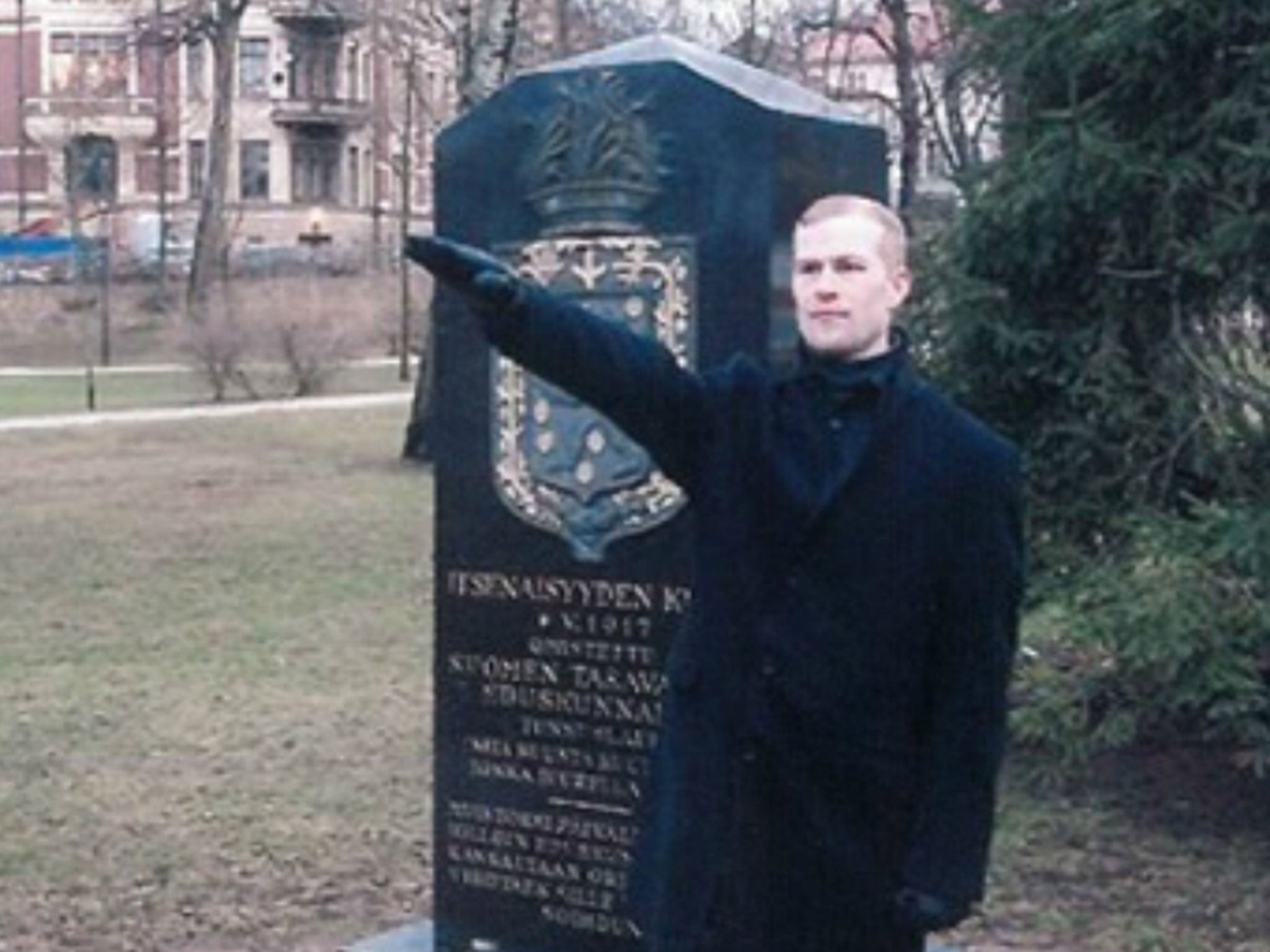Cost of Living: Economic crisis will increase far-right terror threat in UK, security services warn
Report says ‘economic decline’ is driving increased threat and that individual hardship can push people towards attacks

“Economic decline” is increasing the risk of far-right terror attacks in the UK, officials have warned.
A report on extreme right-wing terrorism published by parliament’s Intelligence and Security Committee (ISC) on Wednesday revealed a series of warnings by the security services and experts.
An assessment by the Homeland Security Group in 2021 said that police, MI5 and international security services believe the “threat is likely to increase over the next five years, with economic decline caused by COVID-19 being a likely driver of increased threat”.
The review predated the cost of living crisis, but predicted how individual hardship could push people towards terrorism.
“Given that the current threat is predominantly from self-initiated terrorist, not groups, individual ‘micro’ motivations (e.g. an individual’s employment status) are as likely to influence the threat as ‘macro’ ones (e.g. increasing levels of immigration into Europe),” the Homeland Security Group said.
It also warned of the impact of the rise of identity politics and conspiracy theories, and “a reduction in trust in the state and the mainstream institutions”, which has come into focus again following the meltdown of Boris Johnson’s government.
The Joint Terrorism Analysis Centre (JTAC), led by MI5, also said the risk of terrorism was being increased by “economic recession and a lack of socio-economic security, terrorist engagement with wider community grievances around the effects of the pandemic, and global instability”.
The ISC report said that MI5 has observed a shift in the ages and backgrounds of those associated with extreme right-wing terrorism, from predominantly adult men, often with criminal backgrounds, to “individuals with no criminal background, who are often well educated, technically sophisticated and increasingly under the age of 18”.
The Security Service puts the change partly down to “an increasingly pessimistic narrative regarding the prospects of the UK’s young generation which, it argues, serves to enhance anxiety and a victim culture, both of which extreme right-wing ideologies are quick to exploit”.
The ISC report said that the far-right terror threat had been growing in the UK for five years, with the number of related investigations and attack disruptions all rising.
Of the 14 terror incidents declared by police since March 2017, two have been committed by far-right extremists, 10 by jihadists and two were motivated by an unclear ideology.
In the same period, 32 attacks have been foiled by the security services - 18 by jihadists, 12 from the extreme right-wing and two labelled as ‘single issue terrorism’.

The ISC report said that the “fragmented and complex”, and largely internet-based, nature of far-right terrorism was a challenge for police and the security services.
The banning of neo-Nazi terrorist group National Action and successor organisations is believed to have discouraged while supremacists from forming similar groups in the UK, making threats more “difficult to identify and monitor”.
“Their motivation can be highly individualistic, according to their particular personal circumstances, the nature of their grievances and perceptions of their own capabilities - determining how, why and when they may choose to attack is therefore particularly challenging,” the report said.
It warned of an “insider threat” from right-wing extremists in the military and police, after members of National Action were found in both the British Army and Metropolitan Police.
The Royal Navy failed to discharge a sailor who was active in the Generation Identity white nationalist group in 2020, and is only now moving to kick him out after he joined the more extreme Patriotic Alternative organisation.
Figures published in the report show that the vast majority of referrals made by the Ministry of Defence to the Prevent counter-terrorism scheme are over extreme right-wing, rather than Islamist, concerns.
The ISC report said: “Individuals often seek to join the military, groups seek to recruit within the military, and military experience is a source of legitimacy among extreme right-wing terrorist groups.

“It is something of an anomaly that the armed forces do not provide clear direction to service personnel regarding membership of any organisation, let alone an extremist one.
“A similar risk exists from the insider threat in relation to the police, with issues around the current vetting processes for candidates applying to join the police - the lack of thorough background checks is a matter of concern.”
The committee found that police can also be targeted by far-right terrorists because they are seen as “part of the system they wish to change”.
The report also revealed that there was evidence suggesting Russian state support for some far-right groups in the UK, adding: “It is likely that this is a bid to fuel divisions and increase socio-political discord generally.”
Julian Lewis, chair of the Intelligence and Security Committee, said that MI5 assumed responsibility for tackling extreme right-wing terrorism, in recognition of the rising threat and a string of attacks.
“However we were seriously concerned to find that MI5 have had to absorb responsibility for tackling extreme right-wing terrorism without any commensurate resourcesm,” he added.
“They cannot be expected simply to absorb this new responsibility. MI5 must be given additional funding to enable it to tackle extreme right-wing terrorism without other areas of their work suffering as a consequence.”
A government spokesperson said it would respond formally to the recommendations in due course.
He added: “The government takes the threat from all forms of terrorism seriously, including the warped ideology of the extreme right-wing. We are committed to tackling those who spread views that promote violence and hatred against individuals and communities in our society, and that radicalise others.”
A Ministry of Defence spokesperson said: “We do not tolerate extremism in any form and make this very clear to personnel and potential recruits.
“We continue to be vigilant and will take early action to confront and challenge extremist behaviours if they occur, including referring personnel to appropriate authorities.”
The National Police Chiefs’ Council lead for vetting, Chief Constable Debbie Tedds, said officers have a professional duty to ensure that any online behaviour is in accordance with an official code of ethics.
She added: “Alongside the College of Policing, we are currently undertaking work to ensure that the measures that vetting practitioners are taking are sufficiently thorough, as well as looking at technological solutions which can assist them in their job of checking use of social media and other online forums.”
Join our commenting forum
Join thought-provoking conversations, follow other Independent readers and see their replies
Comments


Bookmark popover
Removed from bookmarks